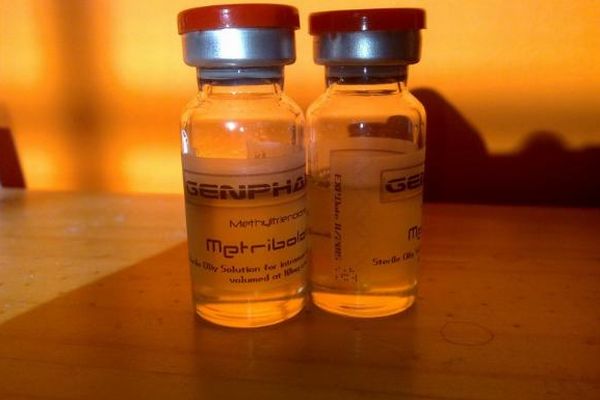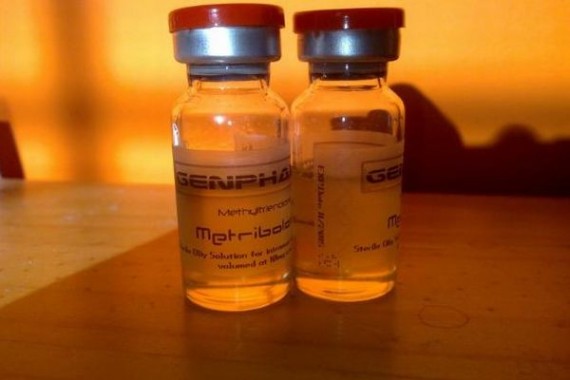
The Hellenic Olympic Committee (HOC) president believes organized doping is behind the fifteen Greek athletes who have failed anti-doping tests before and during the 2008 Beijing Olympics. Former 400-meter hurdles champion Fani Halkia, swimmer Ioannis Drymonakos, 400-meter runner Dimitrios Regas, sprinter Tassos Gousis and eleven unidentified Greek weightlifters all tested positive for the same prohibited anabolic steroid – methyltrienolone (“HOC president: Greek sports face organized doping,” August 18).
“There are 15 people, all with the same substance. This is the strangest thing, because it leads to the conclusion that there is an organized effort,” Minos Kyriakou told The Associated Press. The athletes — 11 weightlifters, three runners and a swimmer — all tested positive for methyltrienolone, a banned steroid. “There is an organized crime — because that is what this is called,” Kyriakou said. “Because it seems there is a lot of money hidden there, a lot of profit.”
While Kyriakou believed organized doping resulted in the methyltrienolone positives, he was careful to dismiss suggestions of systematic doping.
“It’s not systematic, but definitely there are some guys who know the sources and I think the state needs to take care to discover that,” Kyriakou said Sunday. “At the end, they have to be punished by the state.”
The phrases “organized doping” and “systematic doping” are often used interchangebly. But I’m guessing that Kyriakou apparently made the distinction to deflect suggestion of state-sponsored systematic doping of Greek athletes. WADA, on the other hand, apparently had suspicions of systematic doping and a potential cover-up at the WADA/IOC approved anti-doping lab in Athens when they chose to test samples at a lab in Germany (“Greek media accuse Olympic team of cover up,” April 13).
Another unexplained aspect of the whole case which seems to suggest WADA had suspected attempts to mount a cover up is the fact that samples taken from the Greek team were tested in Cologne, Germany, rather than Athens which has one of the world’s most advanced anti – doping labs. Don Catlin, a leading expert on doping,in an interview with NEA, expressed surprise that WADA had choosen not to follow the normal procedure and allow the samples to be examined in the country involved.
Kyriakou did not name who he felt was behind the organized doping although many have blamed Greek weightlifting coach Christos Iakovou who claims to have imported contaminated supplements containing methyltrienolone from the Chinese company Auspere Technology.
I spoke with chemist Patrick Arnold of Ergopharm in Dallas last weekend. He has largely put the BALCO scandal behind him and no longer concerns himself with the tactics used by athletes to beat the drug tests. But when he work with IOC/WADA-tested athletes and created undetectable steroids such as THG, Patrick Arnold told me that several athletes used methyltrienolone in the 1990s to successfully pass doping controls. Anti-doping tests were not sensitive enough to detect the small quantities of the steroid required for performance enhancing effects. He was somewhat surprised that methyltrienolone was detected by drug testers in the Greek Weightlifting steroid scandal suggesting anti-doping tests have improved for the substance.
The fact that athletes were being caught using methyltrienolone was apparent to the international athletic community as early as April 2008 when the Greek weightlifters were busted. So, it seems highly unusual and even unlikely that systematic and/or organized doping was involved in the Greek doping scandal. Why would athletes continue to use methyltrienolone when it was obvious that it could be detected and that anti-doping agencies were looking for it specifically in Greek athletes? Would an organized doping effort be so utterly incompetent as to ignore such a threat and continue doping athletes with a detectable steroid?
This would seem to give more credence to claims of widespread supplement contamination and/or sabotage as alternate explanations to HOC president Minos Kyriakou’s claim of organized doping.
Sprinter Dimitris Regas denied the use of anabolic steroids and claimed sabotage.
Regas claimed he was a victim of “some people who want to attack (Greek) athletics,” adding he would lodge an official complaint against the parties in question, without specifying who they might be.
The coach for 400 meter hurdler Fani Halkia and Dimitris Regas, George Panagiotopoulos, has denied the use of steroids and claimed sabotage.
“It would be my pleasure for Greek justice to intervene. I want them to intervene. My two athletes (Halkia and Regas) did not use methyltrienolone. I believe there has been sabotage or tampering at doping control. I had never heard of that substance, and only learned about it after the weightlifting scandal. One thing is certain, that I would never give such substances to my athletes. How is it possible that one would take prohibited substances only a few days prior to the Olympics, you would have to be insane.”

About the author
Millard writes about anabolic steroids and performance enhancing drugs and their use and impact in sport and society. He discusses the medical and non-medical uses of anabolic-androgenic steroids while advocating a harm reduction approach to steroid education.

Leave a Reply
You must be logged in to post a comment.